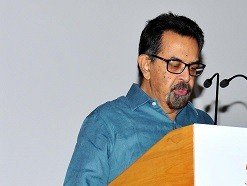ICAR-IISS, Bhopal holds national webinar on improving pan India soil labs
Focus on maintaining high quality standards in soil testing
The Indian Council of Agricultural Research-Indian Institute of Soil Science (ICAR-IISS), Bhopal, Madhya Pradesh, on October 31, 2020, organized a national webinar on ’Quality Improvement and Proficiency Testing of Soil Laboratories in India: Towards Improving the Quality of Analytical Data and Harmonization of Soil Test Methods’. Dr S K Chaudhari, Deputy Director General (Natural Resource Management), ICAR, stressed on the strong need to maintain the quality standards in soil testing. Focusing on developing uniform protocols of soil testing, he also emphasized on the need to establish a soil testing network in India for ensuring the guidance and quality control system.
Dr Anupam Mishra, Vice-Chancellor, Central Agricultural University, Imphal, Assam highlighted the major role that the soil test based fertilizer nutrient recommendations have to play in doubling the farmers’ income by reducing the cost and increasing the farmers’ productivity. Nopmanee Suvannang, Chairperson, Global Soil Laboratory Network (GLOSOLAN), FAO, apprised the participants about the activities of Global Soil Partnership (GSP). She outlined the GLOSOLAN’s objectives to improve the labs’ quality through regular training; harmonization of Standard Operating Procedures (SOPs) for the interpretation of data across the laboratories, etc.
The need to create a National Network of Soil Testing Laboratories in India was also discussed. The webinar was aimed at apprising the participants about the whole process of Quality Improvement and Proficiency Testing.
Focus on maintaining high quality standards in














